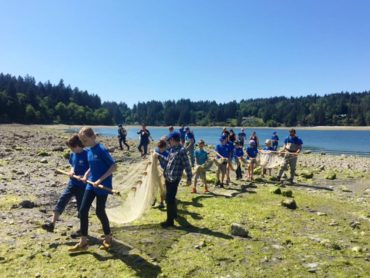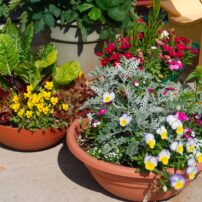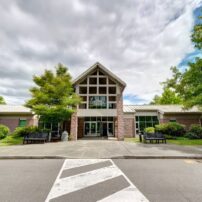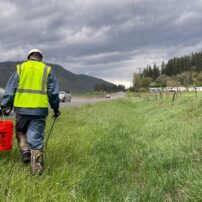 Citizen scientists are the new science superheroes, volunteering their time and experience to gather data in support of research projects from astronomy to zoology. So, what is Citizen Science all about.
Citizen scientists are the new science superheroes, volunteering their time and experience to gather data in support of research projects from astronomy to zoology. So, what is Citizen Science all about.
Citizen science is a collaboration between scientists and members of the public to expand opportunities for data collection and analysis. There are many benefits to community involvement with scientific research. Many projects are extremely pressed for time and resources. Through volunteer partnerships, these projects can drastically expand the depth and scope of what the scientist could accomplish alone.
One project, the Galaxy Zoo, is a global collaborative endeavor that has volunteers analyzing pictures from the Hubble space telescope to look for and categorize new galaxy formations. The telescope takes millions of pictures, and it would take years for the team to look through all of them.
Computer programs are useful at recognizing things they have seen a lot before, but are unable to reliably categorize and understand new objects. This makes them terrible at complicated identification tasks, like looking for new galaxy formations. People are more adaptable and intuitive than current computer programs at detecting unusual patterns.
Researchers in charge of the project have said that the outpouring of interest and support has been huge, with more than a 100,000 people from across the globe making more than 40 million classifications. According to the team, it would have taken one perfect grad student working 24/7 for 3.5 years to get the amount of data their citizen scientists analyzed in six months!
Scientific work can seem inaccessible and irrelevant to most people’s daily lives, appearing to largely take place in faraway locales or cloistered universities. By encouraging more people to participate in the scientific process, we can help close that distance, making the process of science less mysterious and more approachable.
Science is also a collaborative effort. The widespread view of a lone eccentric genius toiling in secrecy to make a discovery is an outdated and inaccurate view of how real scientific breakthroughs are made. Progress happens with collaboration, teamwork and open sharing of information. To me, there is no greater exemplar of those ideals than citizen science projects.
At Harbor Wild Watch, we have our own exciting citizen science projects underway. The first is our beach-monitoring program, started in 2013 by our science specialist, Stena Troyer, in partnership with the biology department at Pacific Lutheran University.
For the last five years, during the summer and winter months, Harbor WildWatch conducts population surveys on the flora and fauna of nine different beaches around South Puget Sound. By looking at the same beaches over an extended period, we can determine baseline population levels. This helps us gauge the health of our beaches and how they change over time.
The project has already delivered some interesting results, documenting the establishment and spread of invasive Pacific oysters at three of our beach monitoring sites.
In a 2016 citizen science initiative, we are partnered with the National Oceanic and Atmospheric Administration to monitor the effect of restoration efforts on rockfish populations in Puget Sound. Though rockfish was once plentiful, commercial harvest, recreational fishing and habitat degradation have taken their toll on rockfish populations.
Today, three rockfish species are federally listed as threatened or endangered and no commercial or recreational harvest of rockfish is allowed in Puget Sound. Our citizen science rockfish surveys, conducted by volunteer scuba divers, play a key role in informing scientists and policy makers on the efficacy of current recovery efforts.
As the world’s climate continues to change, it will be increasingly important to document how our ecosystems are reacting. Citizen science projects are a wonderful way for anyone, including children, to contribute to the scientific process and help develop our collective understanding of our dynamic planet.
Not only do these projects provide valuable data, they connect the public with the scientific process that too often seems remote and removed from daily life. Increased scientific literacy leads to more effective stewardship decisions by citizens and policy makers. There is great work being done all around us, and great works that we can all take part in.
If you find yourself wanting to take part in some fun, civic engagement this summer come and join us down at the beach! Learn more about Harbor WildWatch’s Citizen Science program at HarborWildWatch.org.
Harbor WildWatch is a 501(c)(3) non-profit environmental education organization based in Gig Harbor, WA. Their mission is to inspire stewardship for Puget Sound by providing learning opportunities about the environment to the people in the local community. Through more than 600 fun and interactive programs each year, Harbor WildWatch hopes to inform residents and visitors about local marine life and elicit their involvement in preserving our natural resources.


























Comments